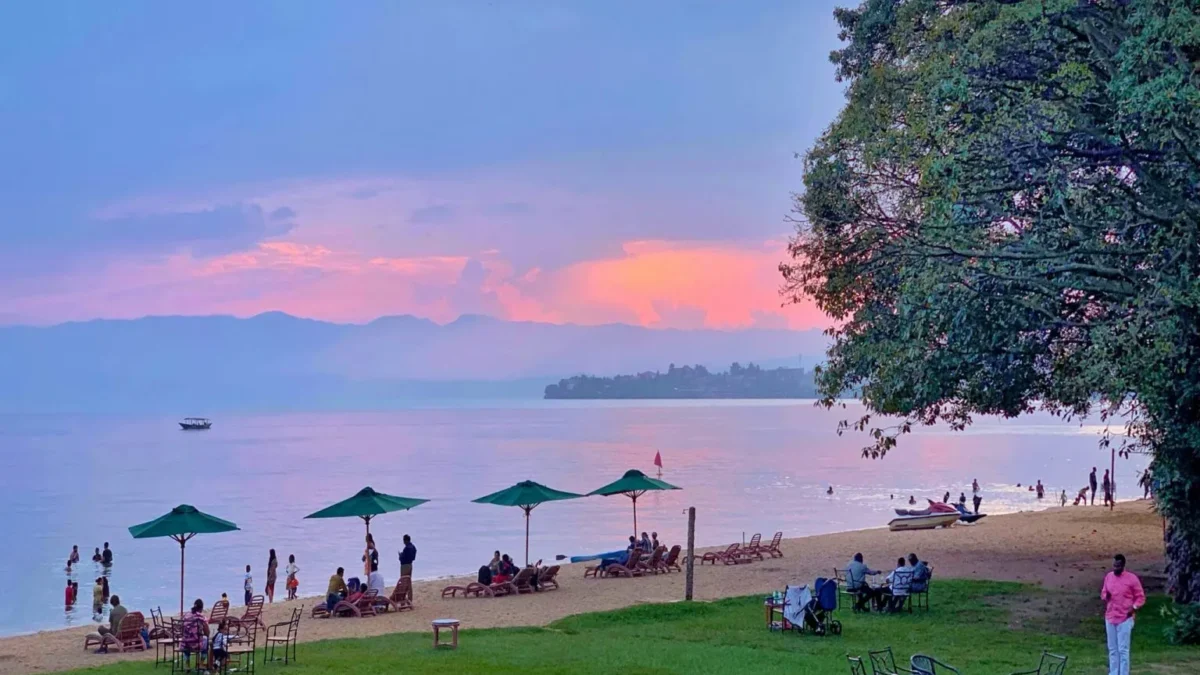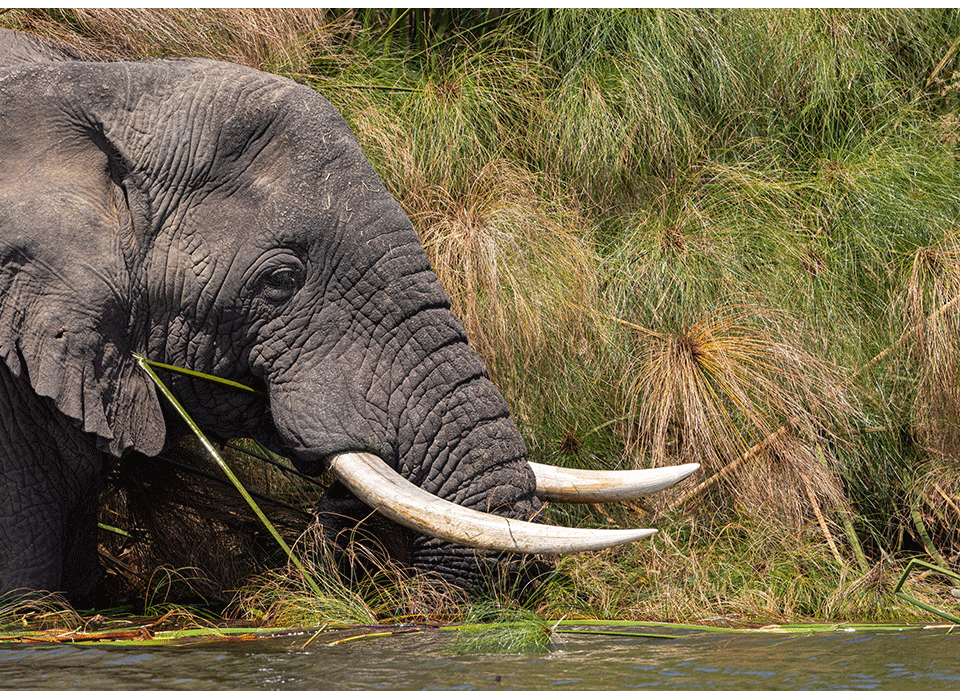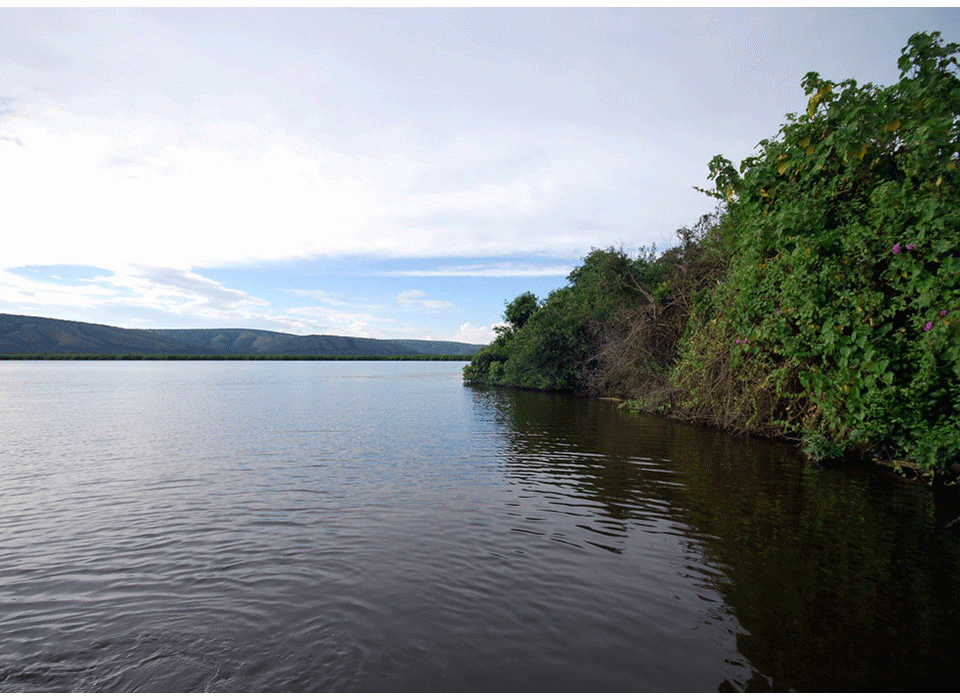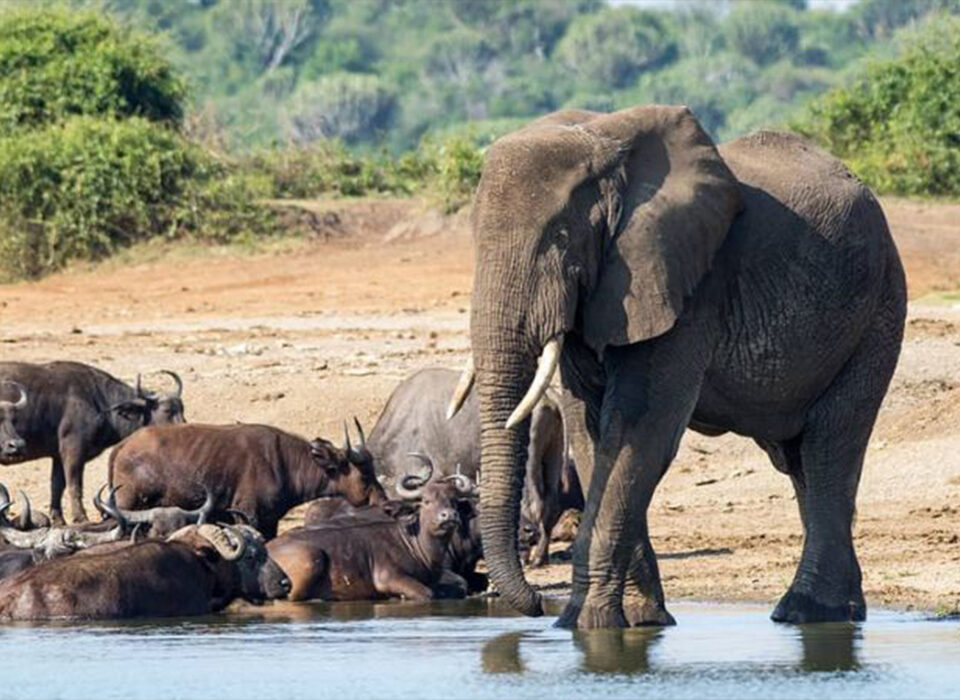
Can I go hiking in Volcanoes National Park?
November 13, 2025
What are the best islands on Lake Kivu?
November 13, 2025Is Lake Kivu Good for Swimming?
Lake Kivu, one of Africa’s great lakes and a breathtaking jewel straddling the border between Rwanda and the Democratic Republic of Congo, is among the most serene and picturesque freshwater lakes on the continent. Known for its tranquil shores, stunning sunsets, and lush hillsides, it is a beloved destination for travelers exploring Rwanda’s western region. One of the most common questions visitors ask is: Is Lake Kivu good for swimming? The answer is yes—Lake Kivu is safe and enjoyable for swimming, making it one of Rwanda’s best natural relaxation spots.
This detailed blog explores everything you need to know about swimming in Lake Kivu, the safety of the water, where to swim, what to expect, and why this lake is such a magical place to unwind during your Rwanda journey.
Lake Kivu: A Natural Beauty Steeped in Warmth and Calm
Stretching from the vibrant town of Rubavu (Gisenyi) in the north to the peaceful shorelines of Karongi (Kibuye) and Rusizi in the south, Lake Kivu is a masterpiece of nature. Its turquoise waters, gentle waves, and backdrop of terraced hills make it one of Africa’s most scenic lakes.
Lake Kivu’s unique geological origins, breathtaking geography, and mild temperatures create ideal conditions for swimming, boating, kayaking, and lakeside relaxation. Unlike many African lakes known for dangerous wildlife or parasites, Lake Kivu is remarkably safe, adding to its appeal for visitors.
Yes—Lake Kivu Is Good for Swimming
Lake Kivu is one of the safest major lakes in Africa for swimming. Many travelers are pleasantly surprised to learn that the lake is:
Bilharzia-free
Free of dangerous wildlife
Calm and warm
Accessible to both experienced and beginner swimmers
This makes it a perfect destination for families, couples, solo travelers, and anyone seeking refreshing natural waters.
Why Lake Kivu Is Safe for Swimming
Unlike lakes such as Lake Victoria or certain regions of Lake Tanganyika, Lake Kivu boasts conditions that are ideal for safe swimming.
1. Bilharzia-Free Waters
One of the biggest concerns travelers have in African lakes is bilharzia (schistosomiasis), a parasitic infection. Fortunately, Lake Kivu is bilharzia-free, making it one of the few major lakes in Africa where visitors can swim without this worry.
This is due to the lake’s depth, mineral composition, and unique water chemistry, which create conditions unsuitable for the snails that transmit bilharzia.
2. No Dangerous Animals
Lake Kivu does not have dangerous aquatic wildlife such as crocodiles or hippos along the Rwandan shores. This allows swimmers to enjoy the water without concerns about potentially dangerous animal encounters.
3. Calm, Warm Waters
Lake Kivu’s waters are generally warm, with an average temperature of 23–25°C (73–77°F), making it pleasant for swimming year-round. Unlike rough ocean waters or fast-moving rivers, Lake Kivu’s waves are gentle and predictable, which enhances safety for swimmers of all levels.
4. Designated Swimming Areas
Popular towns along the lake such as Rubavu and Karongi have designated swimming zones near hotels and beaches, ensuring clean, safe, and accessible areas for swimmers.
Where to Swim in Lake Kivu
Lake Kivu offers multiple beautiful swimming spots along its Rwandan shores. Each location has something unique to offer.
Rubavu (Gisenyi) – The Most Popular Swimming Destination
Rubavu, known for its long sandy beach and lively waterfront, is the top swimming spot on Lake Kivu. The area features:
Sandy beaches
Calm, shallow waters
Beachfront resorts
Vibrant cafés and restaurants
Rubavu’s public beach near Serena Hotel and Tam Tam Beach is particularly popular with both locals and visitors.
Karongi (Kibuye) – A Peaceful Swimming Haven
Karongi is ideal for travelers seeking tranquility. Its crescent-shaped bays, stunning islands, and quiet waters create a serene swimming environment. Popular swimming spots include:
Near Cormoran Lodge
Bethany Hotel waterfront
Mpembe Peninsula
Swimming here feels peaceful and rejuvenating, surrounded by deeply forested hills and gentle breezes.
Rusizi – Remote and Scenic
In the southern part of Lake Kivu, Rusizi offers more isolated beaches with dramatic landscapes. This region is perfect for travelers looking for a more private swimming experience.
Island Beaches
Lake Kivu is dotted with beautiful islands such as Napoleon Island and Amahoro Island. While not all have designated beaches, some offer quiet, clean spots for swimming during boat excursions.
What Swimming in Lake Kivu Feels Like
Swimming in Lake Kivu is refreshing and calming. The water is pleasantly warm, clear, and soft against the skin. When you swim here, you feel surrounded by:
Rolling terraced hills
Green forests
Fishing boats gliding across the water
Birdsong
Gentle breezes
Endless sky reflections
It is a truly peaceful, almost meditative experience—perfect for unwinding after gorilla trekking, chimpanzee trekking, or hiking adventures.
Safety Tips for Swimming in Lake Kivu
Even though Lake Kivu is safe, responsible swimming practices are essential.
1. Swim in Designated Areas
Resort beaches and marked swimming zones are always the safest places to swim, especially for beginners or children.
2. Avoid Swimming Alone
Always swim with at least one companion or where lifeguards or resort staff can see you.
3. Be Mindful of Weather
Although Lake Kivu is calm, strong winds can occasionally cause waves. If conditions change, exit the water until it settles.
4. Be Cautious if You Are Not a Strong Swimmer
Some areas become deep quickly. Wearing a life jacket is always a smart option—especially when swimming far from the shore.
5. Avoid Swimming at Night
The lake may feel warm and inviting after sunset, but visibility is low and harder to judge distances.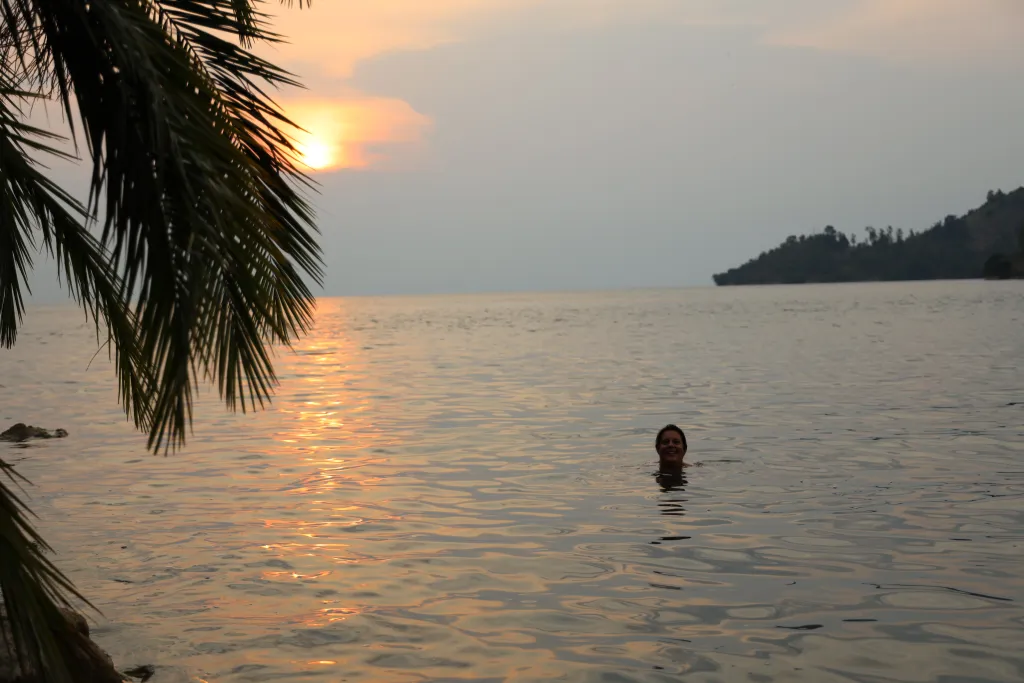
Other Water Activities You Can Enjoy at Lake Kivu
If swimming isn’t enough to satisfy your love for the water, Lake Kivu offers numerous activities that add excitement to your trip.
Kayaking
Kayak along calm waters, explore hidden coves, and enjoy sunset views from the lake.
Boat Cruises
Take a scenic boat trip to nearby islands or simply enjoy the rolling hills from the water.
Paddleboarding
Stand-up paddleboarding is becoming increasingly popular, especially around Karongi.
Canoeing
Traditional canoes offer a cultural way to explore fishing villages.
Fishing
Local fishermen offer guided fishing experiences during early morning hours.
Beach Sports
Volleyball, soccer, and beachside relaxation are common in Rubavu’s sandy areas.
Why Lake Kivu Is a Must-Visit Destination
Beyond its swimming appeal, Lake Kivu stands out for several reasons:
Tranquility
The calm atmosphere is ideal for relaxation and reflection.
Stunning Natural Scenery
The surrounding hills are some of the most picturesque landscapes in Rwanda.
Variety of Lakeside Towns
Each region offers different experiences—from lively Rubavu nightlife to quiet Karongi retreats.
Ideal Stop Between National Parks
Lake Kivu is conveniently located between Volcanoes National Park and Nyungwe Forest, making it the perfect midpoint for travelers.
Cultural Experiences
Fishing villages, coffee washing stations, local markets, and lakeside communities offer unique cultural interactions.
The Science Behind Lake Kivu’s Unusual Composition
Lake Kivu is one of only three lakes in the world with large deposits of methane and carbon dioxide deep beneath its waters. These gases stay safely trapped under immense pressure and do not affect the lake’s surface or swimming areas.
Rwanda has implemented advanced methane extraction plants that safely remove and utilize methane for electricity production, reducing risks and benefiting local communities.
For swimmers, these gases pose no danger at all—the lake’s surface waters remain clean and safe.
When Is the Best Time to Swim in Lake Kivu?
Lake Kivu’s mild climate means you can swim year-round, but the best months include:
June to September
Clear blue skies
Warm days
Calmer waters
December to February
Perfect temperatures
Beautiful sunsets
Ideal for water sports
Even during Rwanda’s rainy seasons, Lake Kivu remains warm and swimmable.
Planning Your Lake Kivu Trip
To fully enjoy Lake Kivu, consider spending:
1–2 days for relaxation
2–3 days to include water activities and cultural visits
3+ days if combining with Volcanoes National Park or Nyungwe
The lake works well in itineraries that include:
Gorilla trekking
Canopy walks
Chimpanzee trekking
Tea plantation tours
Cultural experiences
Book Your Lake Kivu Experience with Experiya Tour Company
For a seamless and enjoyable trip to Lake Kivu—whether for swimming, water sports, relaxation, or exploration—book your journey with Experiya Tour Company. Their expert team arranges transportation, accommodation, lakeside activities, island boat tours, and custom itineraries that include Rwanda’s top attractions. Experiya ensures you enjoy Lake Kivu’s natural beauty safely, comfortably, and with unforgettable experiences tailored to your travel style.

